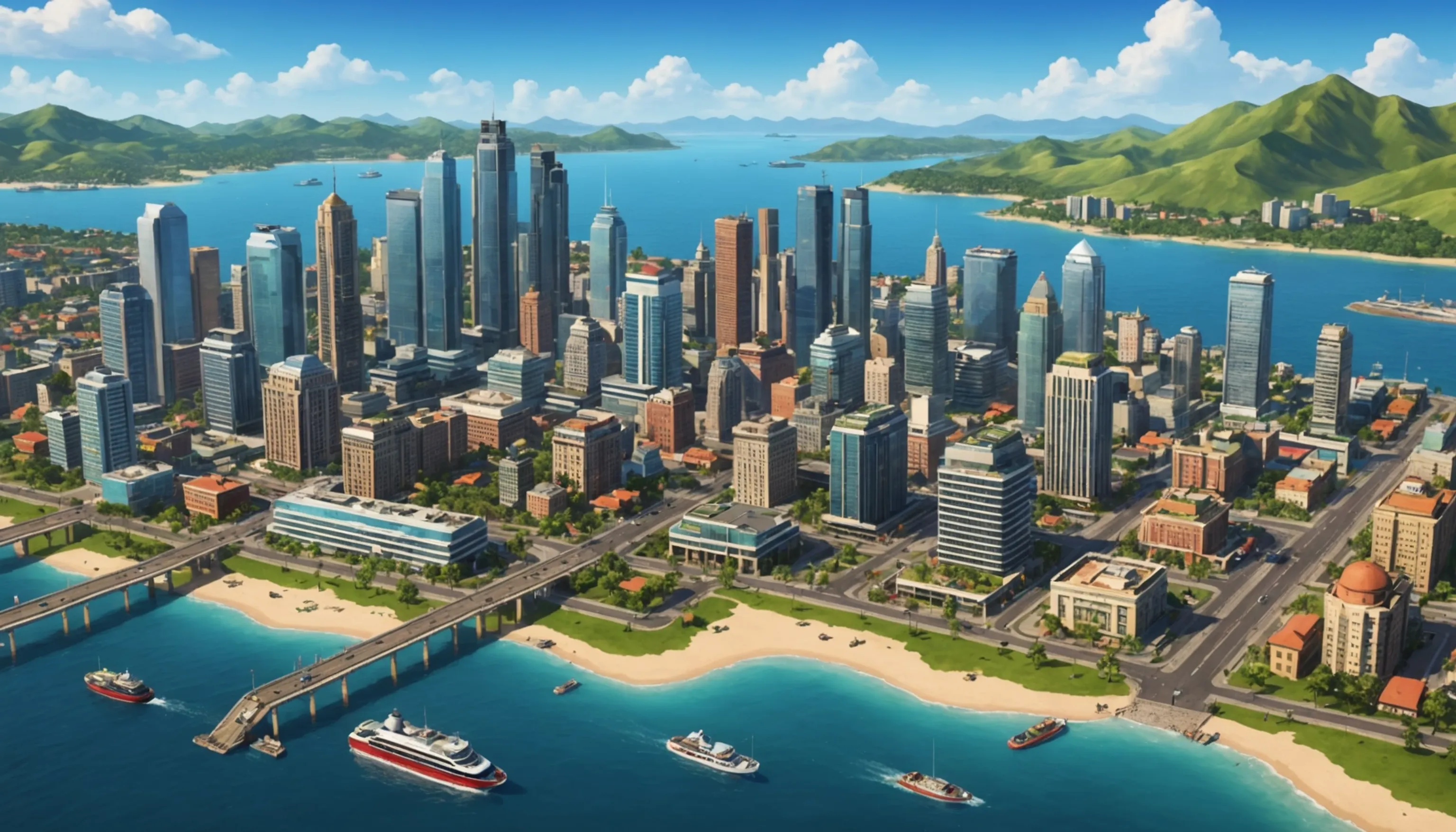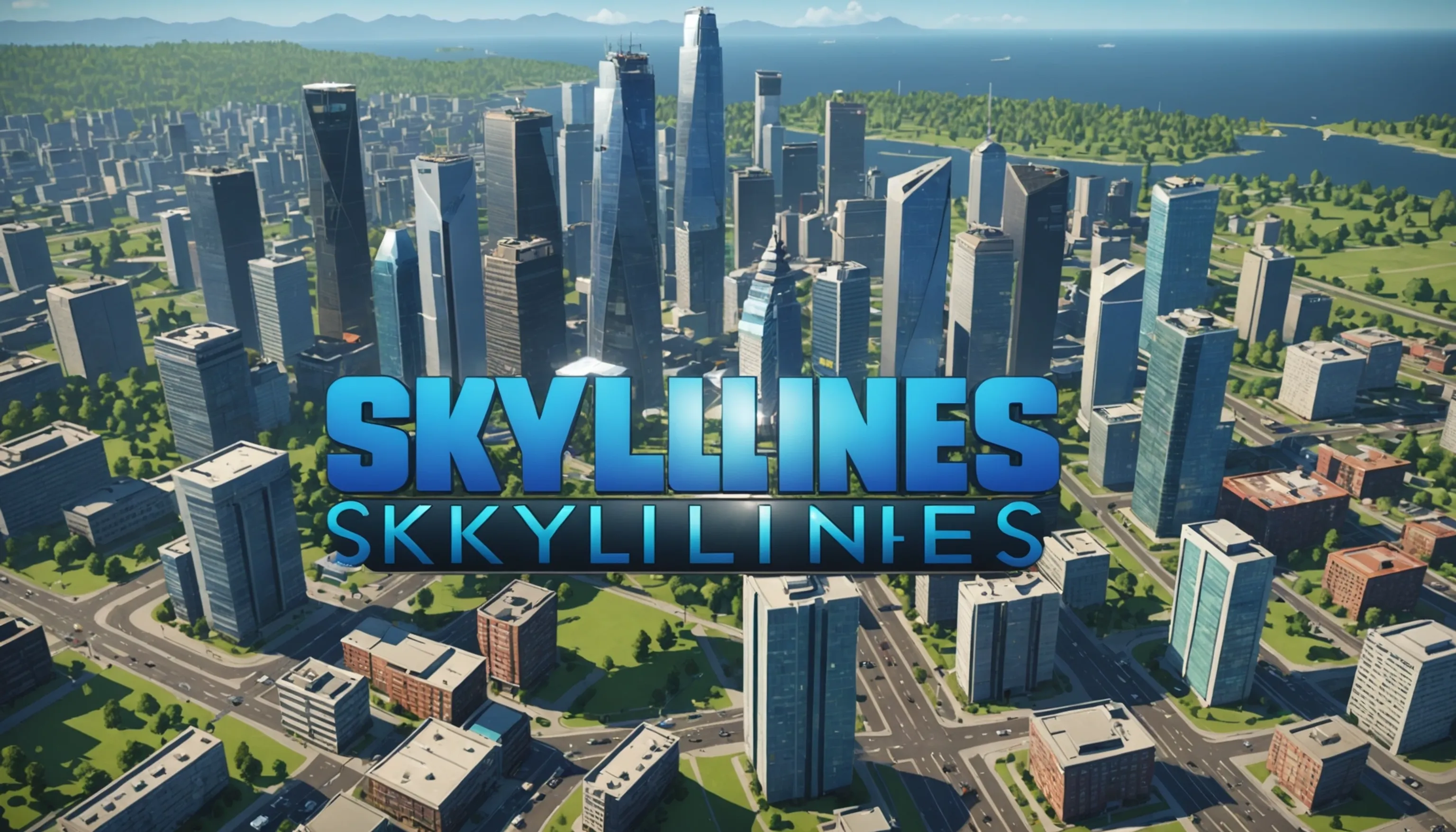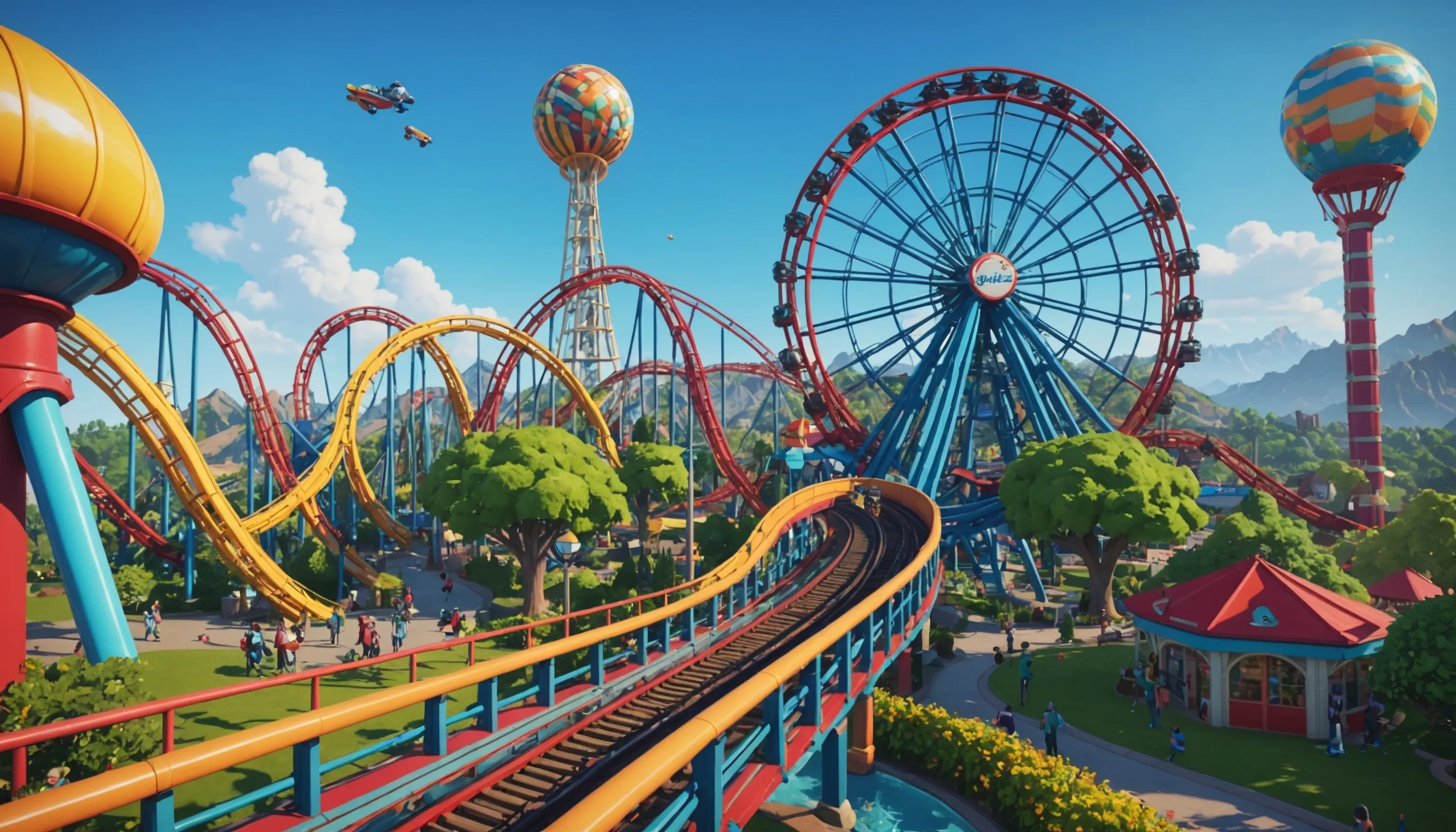City-Building Games Like SimCity
 HvWHenry van Wagenberg
HvWHenry van Wagenberg
Best City-Building Games Similar to SimCity
If you’re looking for the best city-building games similar to SimCity, there are several fantastic options to consider. These games not only offer engaging gameplay but also allow players to unleash their creativity while managing complex urban environments.
One standout title is Cities: Skylines, which is renowned for its depth and realism. Another popular choice is the Tropico series, where you can take on the role of a dictator managing a tropical island. Additionally, Anno 1800 combines city-building with trade and strategy, providing a rich gaming experience.
What Makes a Great City-Building Game?
A great city-building game captivates players with its ability to combine creativity, strategy, and realism. Here are some key elements that contribute to a successful city-building experience:
- Engaging Gameplay: Players should feel immersed in the game, with intuitive controls and rewarding mechanics that encourage exploration and experimentation.
- Realistic Simulation: A well-designed game accurately simulates urban dynamics, including traffic flow, population growth, and resource management. This realism adds depth and challenges, making players think critically about their decisions.
- Customization Options: Great city-building games offer extensive customization, allowing players to design their cities to reflect their unique vision. Whether it’s choosing building styles or laying out transportation networks, flexibility is key.
- Dynamic Challenges: Introducing unexpected events, such as natural disasters or economic shifts, keeps gameplay fresh. These challenges require players to adapt and innovate, enhancing the overall experience.
- Community and Mod Support: A game that fosters a community around it, with support for mods and user-generated content, extends its longevity and replayability. Players can share their creations and experiences, enriching the game world.
Ultimately, a great city-building game strikes a balance between complexity and accessibility, making it enjoyable for both newcomers and seasoned players. It encourages critical thinking, creativity, and strategic planning, making it an ideal choice for teenagers and adults alike.
Top Alternatives to SimCity
When searching for top alternatives to SimCity, several engaging city-building games stand out, each offering unique features and gameplay experiences.
- Cities: Skylines: This game is often hailed as the spiritual successor to SimCity. It provides players with extensive tools for urban planning and management, allowing for intricate city designs.
- Tropico Series: In this game, players take on the role of a dictator managing a small island nation. It combines humor with serious strategic elements, offering a unique twist on city-building.
- Anno 1800: Set during the Industrial Revolution, this game mixes city-building with trade and exploration, adding layers of complexity and strategy.
- Planet Coaster: While focusing on theme park management, it shares many city-building elements, especially in design and planning.
These alternatives provide exciting opportunities for players to unleash their creativity while managing vibrant urban environments.

Cities: Skylines
Cities: Skylines has emerged as one of the most popular city-building games since its release in 2015. Developed by Colossal Order and published by Paradox Interactive, this game offers an expansive and immersive urban planning experience. Players are tasked with creating and managing a city from the ground up, dealing with various challenges that come with urbanization.
One of the standout features of Cities: Skylines is its deep simulation mechanics. Players must manage essential services such as transportation, healthcare, and education while ensuring their city remains economically viable. The game allows for intricate road systems and public transport networks, which can alleviate traffic congestion and improve citizen satisfaction.
Customization is another key element of the game. Players can modify city layouts, zoning, and even build unique structures through the Steam Workshop, where modding support is robust. This community-driven aspect enhances replayability and keeps the game fresh with new content.
Moreover, Cities: Skylines educates players about urban planning and environmental sustainability, making it a valuable experience for teenagers and adults alike. With its engaging gameplay and realistic challenges, Cities: Skylines continues to set the standard for modern city-building games.
Tropico Series
The Tropico series is a beloved franchise in the city-building genre, offering players a unique blend of political strategy and management simulation. Set on a fictional Caribbean island, players assume the role of a dictator, known as El Presidente, tasked with building a prosperous nation while navigating the complexities of governance and foreign relations.
One of the most appealing aspects of the Tropico series is its humor and charm. The game balances serious political themes with lighthearted elements, making it both entertaining and thought-provoking. Players must manage various aspects of their island, including agriculture, industry, and tourism, all while keeping their citizens happy and dealing with potential revolts.
The series features multiple iterations, each expanding on the gameplay mechanics and introducing new elements. For instance, in Tropico 6, players can manage multiple islands and utilize a more extensive transport system, enhancing the strategic depth. Additionally, the customization options allow players to design their islands according to their vision, choosing from various buildings, infrastructure, and policies.
Moreover, the Tropico series encourages critical thinking, as players must balance economic growth with the needs of their citizens. This combination of fun, strategy, and political maneuvering makes Tropico an engaging experience for teenagers and adults alike, cementing its place as a top alternative to SimCity.
Anno 1800
Anno 1800 is a captivating entry in the long-running Anno series, combining city-building and economic simulation in a beautifully crafted setting during the Industrial Revolution. Released in 2019 by Ubisoft, this game allows players to establish and manage their own cities while navigating the complexities of trade, diplomacy, and exploration.
One of the standout features of Anno 1800 is its focus on detailed city planning and resource management. Players must gather raw materials, such as wood and coal, and transform them into goods that their citizens need. This requires strategic thinking, as players must balance the needs of their population with the production capabilities of their industries.
The game also introduces a rich narrative and a variety of missions, enhancing the overall experience. Players can engage in diplomacy with other nations, trade goods, and even engage in warfare if necessary. The dynamic economy and political landscape create an immersive gameplay experience.
Another compelling aspect of Anno 1800 is its stunning graphics and attention to detail. The vibrant environments and intricate animations bring the world to life, making city-building a visually rewarding experience. Additionally, the game incorporates educational elements, offering insights into industrialization and urban development.
Overall, Anno 1800 is an excellent choice for those seeking a challenging and engaging city-building game that combines strategy, creativity, and historical context, making it a worthy alternative to SimCity.

Planet Coaster
Planet Coaster is a unique twist on the city-building genre, focusing specifically on theme park management and design. Released by Frontier Developments in 2016, this game allows players to create and manage their own amusement parks, offering an engaging experience that combines creativity, strategy, and fun.
In Planet Coaster, players can build and customize every aspect of their park, from thrilling roller coasters to lush landscapes. The game features an intuitive building system that allows for detailed design, enabling players to craft unique rides and attractions that cater to diverse visitor preferences. This level of customization creates a personal touch, making each park a reflection of the player's imagination.
One of the standout features of Planet Coaster is its immersive simulation of guest behavior. Players must consider visitor happiness, park layout, and queue management to ensure a successful operation. Balancing the thrill of rides with amenities such as food stalls and rest areas is crucial for maximizing guest satisfaction and profits.
Additionally, Planet Coaster encourages creativity through its community features. Players can share their designs, download user-generated content, and participate in challenges, fostering a vibrant community of theme park enthusiasts.
Overall, Planet Coaster offers a delightful and engaging experience for players of all ages, making it an excellent alternative to traditional city-building games like SimCity. Its emphasis on creativity and design, combined with strategic management, provides hours of entertainment for aspiring theme park tycoons.
Educational Value of City-Building Games
City-building games offer significant educational value for players of all ages, especially teenagers. These games engage players in critical thinking and problem-solving, as they must navigate complex systems and make strategic decisions to build and manage their cities effectively.
One key aspect of education in these games is the emphasis on resource management. Players learn to balance budgets, allocate resources, and prioritize needs, which fosters financial literacy. Additionally, city-building games often simulate real-world challenges, such as urban planning, environmental sustainability, and infrastructure development.
Moreover, these games encourage creativity and design principles, as players create unique layouts and solve logistical issues. They promote collaboration and communication when played in a group setting, allowing players to share ideas and strategies. Overall, city-building games serve as valuable tools for learning about economics, urban development, and teamwork, making them both fun and educational.
Critical Thinking and Planning Skills
City-building games significantly enhance critical thinking and planning skills, making them excellent tools for educational development. Players are faced with multifaceted challenges that require them to analyze situations, evaluate options, and make informed decisions. This process fosters a mindset geared toward problem-solving and strategic thinking.
In these games, players must consider various factors when designing their cities, such as resource management, population needs, and environmental impacts. For instance, when building infrastructure, they must plan for traffic flow, public services, and zoning laws. This requires a deep understanding of how different elements interact within the urban ecosystem.
Additionally, players learn to anticipate the consequences of their decisions. A poorly placed road or inadequate public services can lead to traffic jams and citizen dissatisfaction. By seeing the immediate impact of their choices, players develop foresight and the ability to think several steps ahead.
Furthermore, city-building games often introduce unexpected events, such as natural disasters or economic downturns, which compel players to adapt their strategies quickly. This adaptability is a crucial aspect of critical thinking, as players must reassess their plans and implement new solutions in real-time.
Overall, city-building games provide an engaging platform for cultivating essential skills that are applicable in both academic and real-world scenarios, making them valuable for teenagers and adults alike.
Creativity and Design Principles
City-building games are a fantastic medium for fostering creativity and understanding design principles. These games empower players to envision and construct their cities, allowing them to express their artistic vision while learning about urban design and architecture.
Players can experiment with various building styles, layouts, and landscaping options, enabling them to create unique environments that reflect their preferences and creativity. The freedom to design from scratch encourages imaginative thinking, as players must visualize how different elements will coexist within their urban landscapes.
Furthermore, city-building games teach essential design principles such as balance, symmetry, and functionality. Players must consider how their choices impact the overall aesthetics and efficiency of their cities. For example, placing parks strategically can improve citizen happiness and aesthetic appeal, while also enhancing the city’s functionality.
Through trial and error, players learn the importance of integrating various elements, such as residential, commercial, and industrial zones. They must think about accessibility, traffic flow, and the environmental impact of their designs, all of which contribute to a well-rounded understanding of urban planning.
Additionally, many city-building games incorporate modding capabilities, allowing players to create and share custom content. This community aspect further enhances creativity, as players can inspire and learn from one another. Overall, city-building games serve as a powerful tool for developing creativity and design skills, making them an enriching experience for players of all ages.
Understanding Urban Development
City-building games offer players a unique opportunity to gain insights into urban development and the complexities that come with managing a city. Through immersive gameplay, these games simulate the real-world challenges and decisions urban planners face, providing a deeper understanding of how cities function and evolve over time.
Players are often tasked with balancing various aspects of urban life, such as economic growth, environmental sustainability, and community well-being. This multifaceted approach encourages players to consider the interconnectivity of different city elements, such as transportation systems, housing, and public services. For instance, the placement of a new school can affect local property values and community satisfaction, illustrating the ripple effects of urban planning decisions.
Moreover, city-building games often introduce players to critical concepts in urban development, such as zoning laws, population density, and infrastructure planning. Players learn to strategize effectively, considering how to accommodate a growing population while maintaining essential services like healthcare and public safety.
Additionally, players encounter real-world issues such as traffic congestion, pollution, and resource management, prompting them to think critically about sustainable solutions. This hands-on experience fosters an appreciation for the complexities of urban environments and the importance of thoughtful planning.
Ultimately, city-building games serve as engaging educational tools, equipping players with a foundational understanding of urban development principles while promoting awareness of the challenges that cities face in the modern world.
